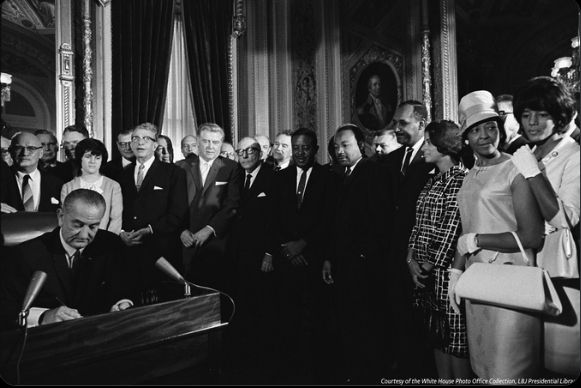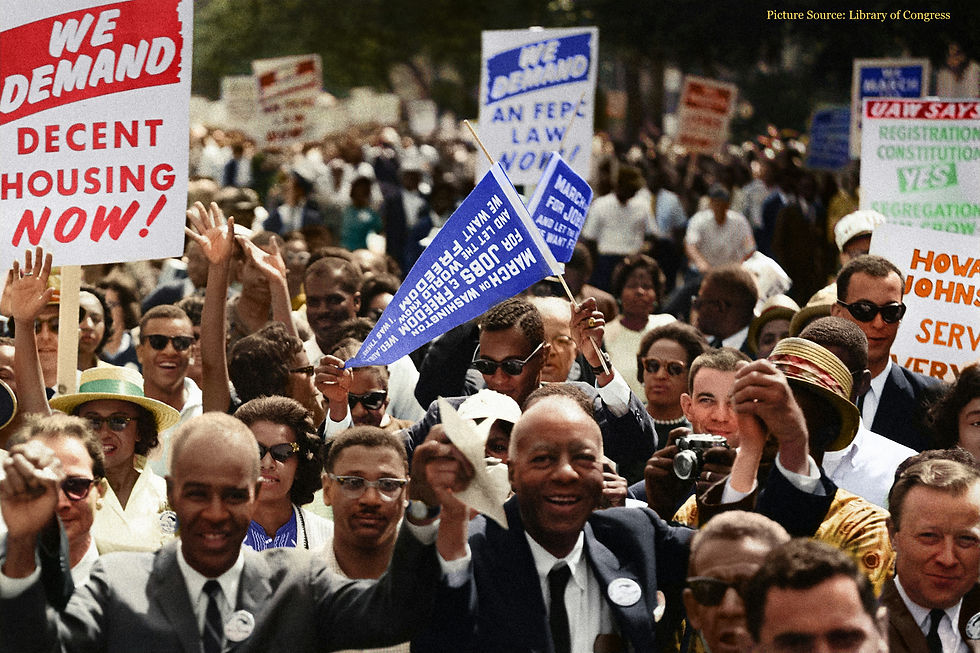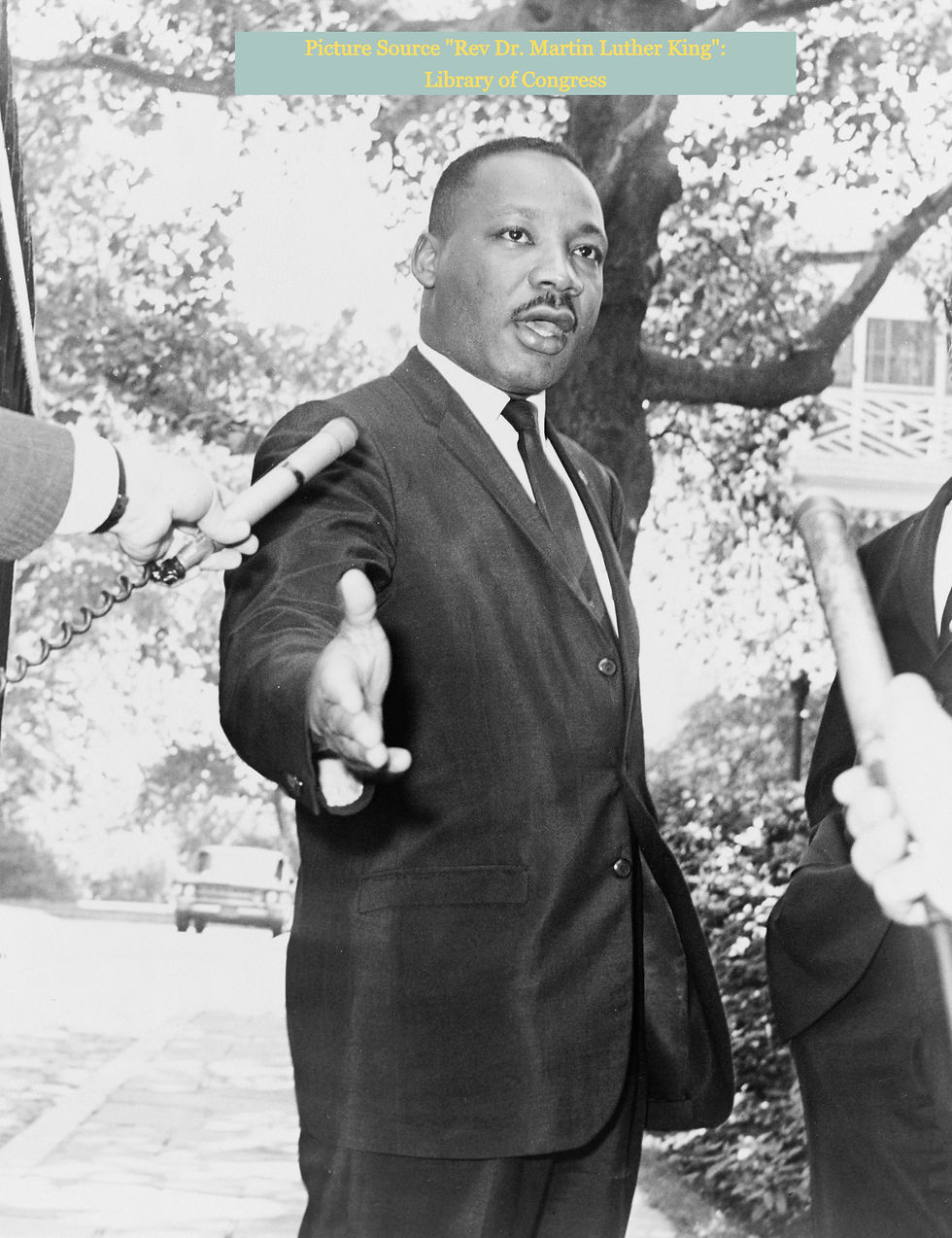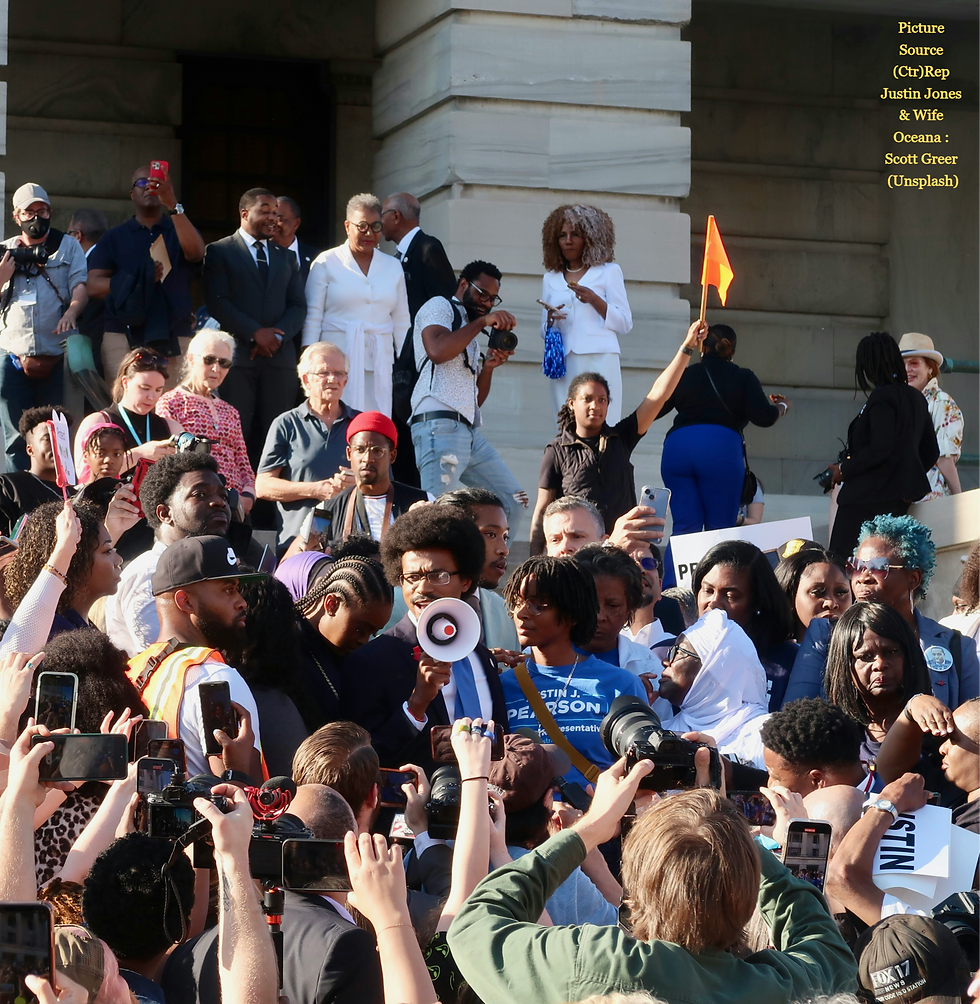Celebrating Legacy and Progress: Empowering Black Americans on the 60th Anniversary of the Voting Rights Act
- Karen Brittingham-Edmond

- Aug 6, 2025
- 3 min read
August 6, 2025
Politics/Culture

The United States today commemorates a significant milestone: the 60th anniversary of the Voting Rights Act of 1965. This landmark legislation not only abolished literacy tests and poll taxes but also dismantled longstanding barriers that had suppressed the voting rights of African Americans. The nation honors this pivotal moment in history, as well as the courageous advocates—such as Rev. Dr. Martin Luther King Jr., NAACP, Thurgood Marshall Esq., Patricia Roberts Harris, Vivian Malone, and Zephyr Wright—who fought relentlessly for justice and equality. Their enduring legacies serve as a testament to the progress achieved and a reminder of the ongoing work required to advance equity.
The Fight for Equality and Access
The Voting Rights Act marked a fundamental shift in the landscape of Civil Rights in America. Despite significant progress, the struggle for unrestricted access to the ballot continues. Throughout history, Black Americans have demonstrated extraordinary courage in advocating for their rights and those of future generations.
Black women have consistently led this fight, driving change across education, employment, and housing rights. Patricia Roberts Harris, the first Black woman to serve in the U.S. Cabinet, not only shattered barriers but also paved the way for future leaders. Their determination underscores the importance of learning from the past while striving for a more just future.

The Legacy of the Voting Rights Act
The Voting Rights Act represented more than legislation; it embodied a national pledge to equality. Thurgood Marshall, the first African American Supreme Court Justice, played a pivotal role in advancing political empowerment for African Americans. His landmark victory in Smith v. Allwright eliminated all-white primaries, amplifying the voices of Black voters.
As the nation reflects on the achievements of the Act, it must also recognize that its mission remains incomplete. Ongoing legal challenges, including Shelby County v. Holder and Milligan, have raised concerns about the future of voting rights protections. It remains essential for society to stay informed and actively engaged in the ongoing pursuit of democracy. https://www.brennancenter.org/our-work/research-reports/shelby-county-v-holder-turns-10-and-voting-rights-continue-suffer-it
Current Challenges and the Path Forward
Though the Voting Rights Act was reauthorized in 2006 with bipartisan support, many systemic challenges remain. Tactics like voter ID laws and limited polling place access continue to disenfranchise Black voters across the nation. In 2020, a report by the Brennan Center for Justice found that at least 30 states had introduced over 100 restrictive voting measures, underscoring the urgency of action.
Today, it is vital to mobilize our communities to ensure that every voice is heard. Unity is a powerful tool in driving policy changes and reform. Organizations like the NAACP play a crucial role in advocating for voting rights and pushing for reforms that elevate marginalized communities.
Reclaiming Our Narrative

This anniversary serves as a crucial reminder to reclaim our narrative. We must not just honor past achievements but also galvanize future leaders. Celebrating this history allows us to amplify the contributions of numerous unsung heroes who fought tirelessly for what was stolen from Black citizens for so long: their right to vote.
Our pride as Black Americans must accompany a commitment to civic engagement. Whether through voting, advocacy, or education, each individual action builds a legacy. Celebrating our past is essential, but it also creates space for new stories—stories that reflect the weight of our history along with the promise of a brighter future.
The Role of Educators and Mentors

Educators and mentors are vital in guiding young Black Americans toward active civic participation. Schools should create an environment that offers a complete historical context surrounding the Voting Rights Act and current voting challenges. Highlighting Black leaders’ contributions can motivate students to take action in their communities.
Additionally, mentors have a unique opportunity to share personal experiences and strategies for overcoming barriers. By fostering open discussions about race, politics, and civic duty, we prepare a generation that is engaged and ready to lead.
A Call to Unity and Action

Reflecting on 60 years of the Voting Rights Act should inspire renewed commitment and unity. We remember those who paved the way before us while acknowledging that the fight is ongoing. The Act's legacy continues to inspire, encouraging us to empower one another in the democratic process.
On this historic occasion, let us embrace our identity while insisting on equality and justice. By honoring our past and committing to our future, we can ensure that every voice in the Black community is not only heard but celebrated. Together, we can forge a path toward an inclusive democracy, lighting the way for the generations to come.





Comments